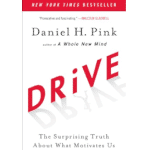But it’s not just a feel-good activity. Journaling is backed by science as a powerful tool to boost mental clarity, reduce stress, and even improve your overall health. Let’s explore how this simple habit can transform your well-being and how you can start today.
Why Journaling Works: The Science Behind It
Stress Relief
Journaling can act as a mental detox. Studies, like those led by psychologist James Pennebaker, show that expressive writing—where you pour your emotions onto paper—helps process unresolved feelings and lowers stress levels. In fact, this practice has been linked to improved physical health, including better immune function.
Improved Mental Clarity
Ever felt overwhelmed by a jumble of thoughts? Writing can help you sort through them. A 2018 study published in Behavior Research and Therapy found that journaling significantly reduces negative thought patterns, especially for people dealing with anxiety or overthinking.
Emotional Resilience
Journaling can boost your emotional intelligence by helping you better identify, process, and manage your feelings. Think of it as having a personal therapist, but way more affordable!
Types of Journaling to Try
There’s no one-size-fits-all approach to journaling. Whether you want to vent, reflect, or organize your life, there’s a style for you:
- Gratitude Journaling
Write down three things you’re grateful for every day. Research in Applied Psychology: Health and Well-Being shows that practicing gratitude improves mood and enhances sleep quality.
- Stream-of-Consciousness Writing
No structure, no rules—just let your thoughts spill out onto the page. This free-flowing style is perfect for decluttering your mind.
- Bullet Journaling
Mix creativity with organization. Use bullet points to track habits, emotions, or goals in a structured and visually appealing format.
- Therapeutic Writing
Reflect on specific events or challenges. According to Pennebaker’s research, writing about trauma or difficult experiences can help reduce anxiety and depression over time.
How to Start Journaling
Ready to dive in? Here are some easy tips to get started:
- Set Aside 10 Minutes: A few minutes a day is all you need. Consistency matters more than length.
- Find a Quiet Space: Choose a calm, distraction-free spot where you can focus.
- Use Prompts: Not sure what to write? Start with questions like, “What’s on my mind right now?” or “What am I grateful for today?”
- Be Honest: This is just for you, so let go of the pressure to write “perfectly.”
More Than Just Writing
Journaling isn’t only about words on a page—it’s about creating a safe space for self-reflection, growth, and stress relief. Over time, you’ll start to notice patterns in your thoughts and emotions that can guide you toward positive changes in your life.
So, grab a notebook or open a blank document. Whether you’re venting about a tough day, celebrating a small win, or exploring your dreams, journaling can be a powerful tool for better mental health.
The benefits of journaling go beyond simple stress relief—it’s a transformative habit that nurtures your mind and emotions. By dedicating just a few minutes a day, you can build a practice that leads to greater clarity, resilience, and happiness.
Recommended – Strategies for Seniors To Improve Their Mobility














